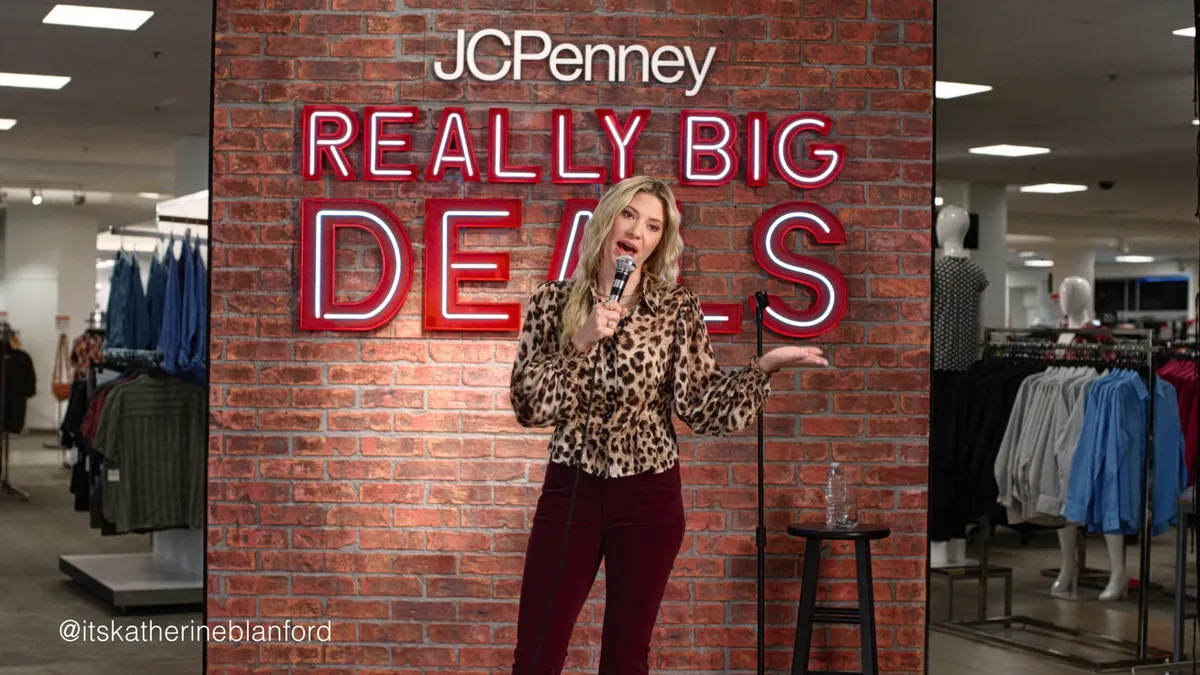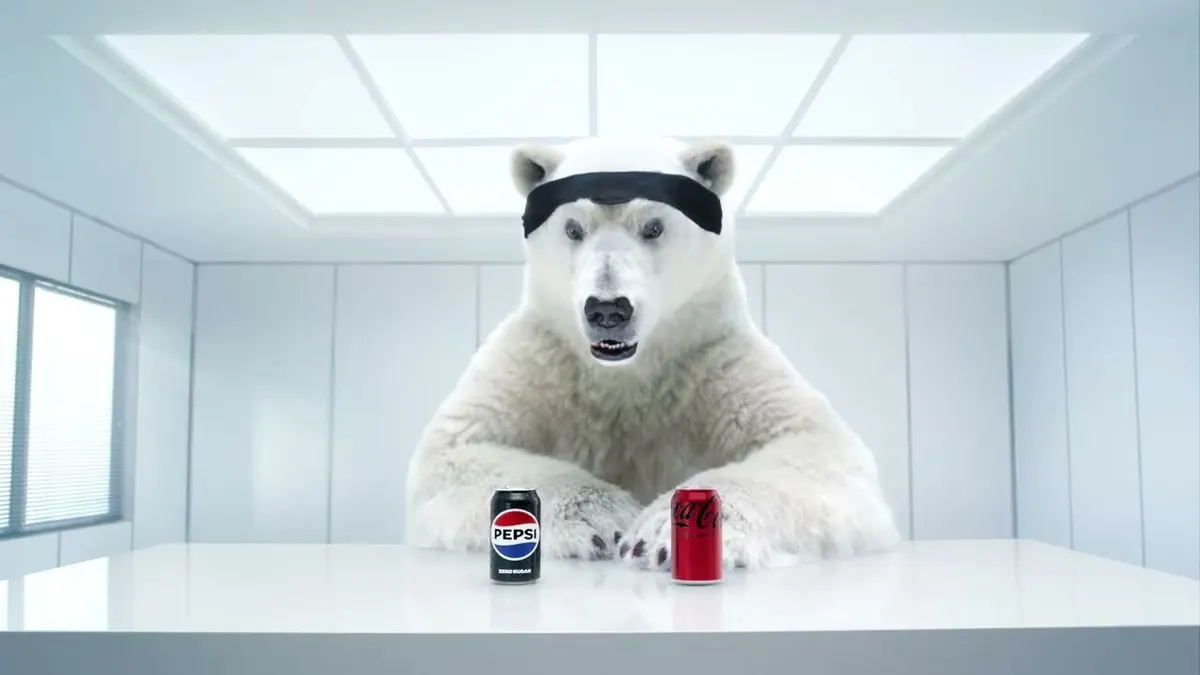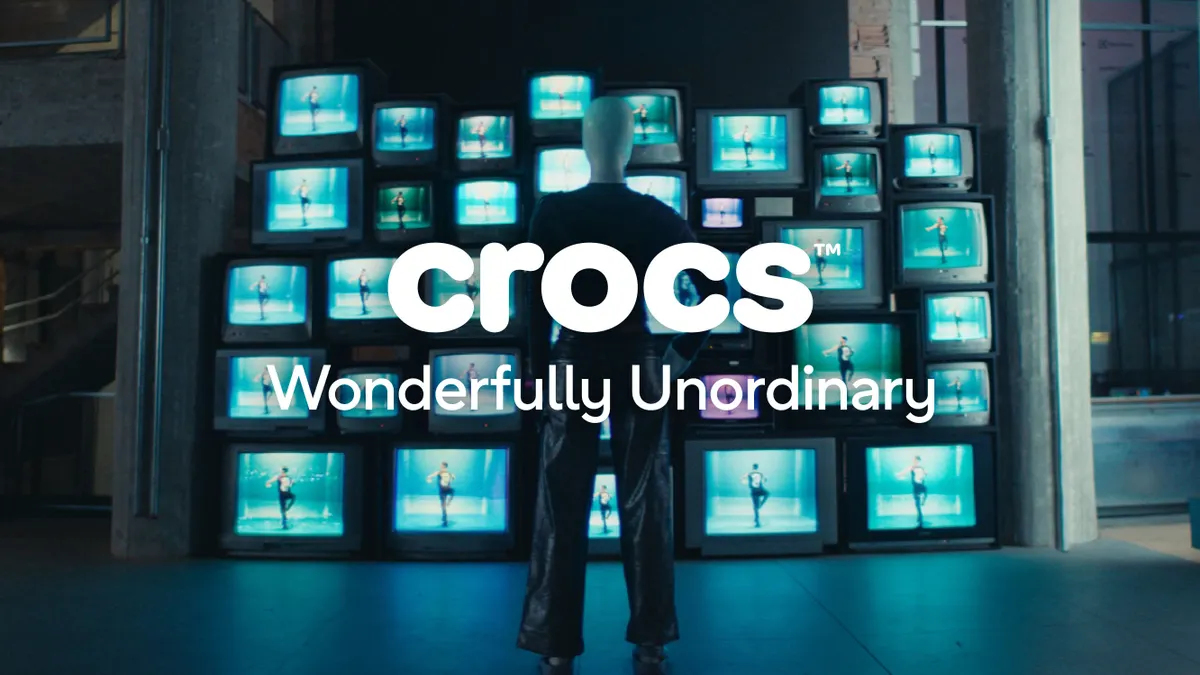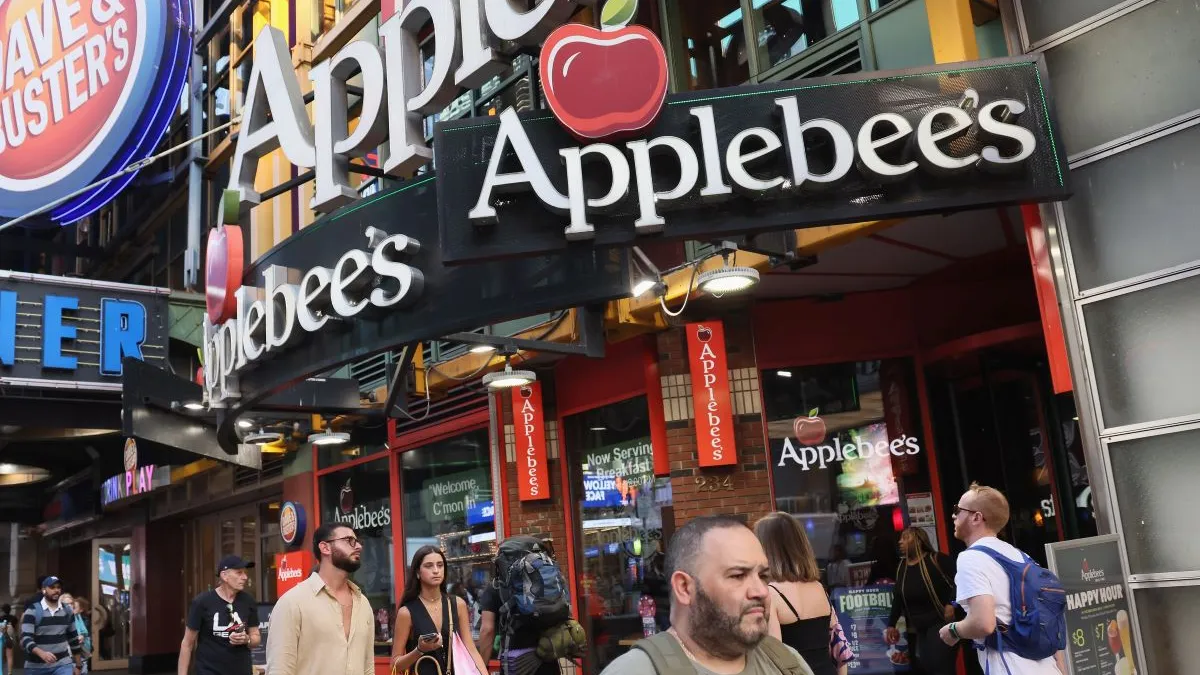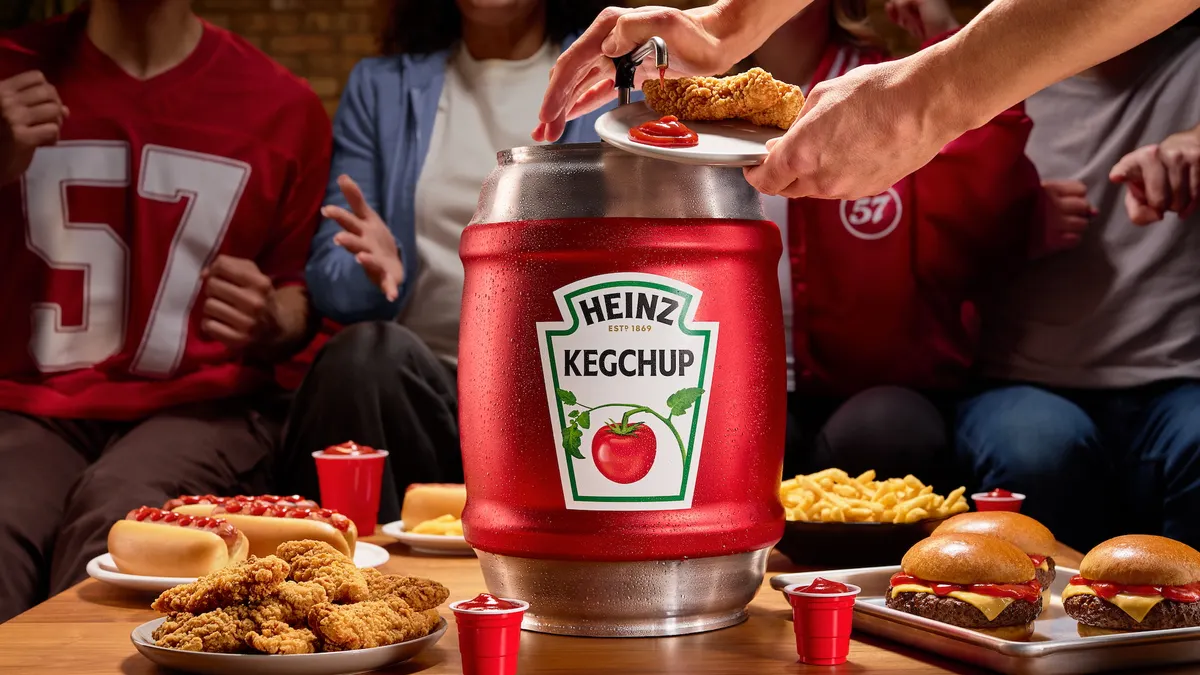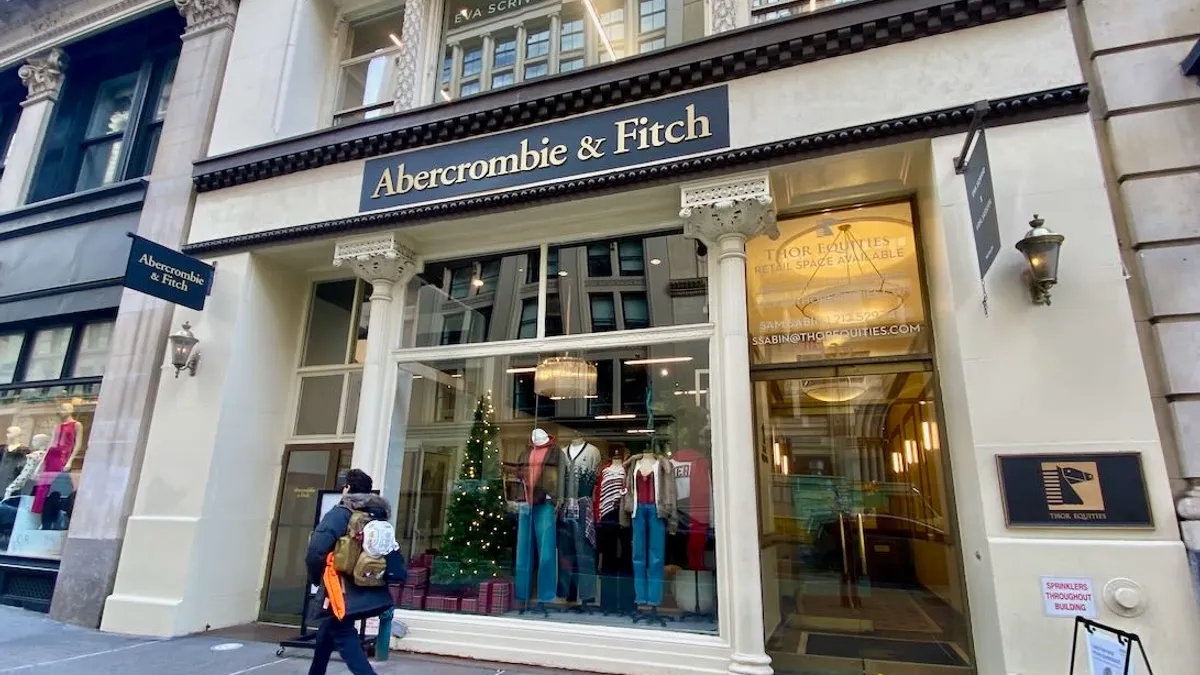JCPenney started the holiday season early with the launch of the third season of its “Really Big Deals” program on Thursday (Sept. 11), per details shared with Marketing Dive. As it did last year, the retailer kicked off the campaign during “Thursday Night Football” on Amazon Prime Video, and a new deal will be revealed every Thursday on the streamer’s gameday programming through Christmas.
The department store chain thinks its new deals are so laughably good that each promotion will debut with an individual spot that finds actual comedians riffing on products in a JCPenney store-turned-comedy club. The campaign was created in-house, with all 13 original spots hosted by returning brand ambassador Shaquille O’Neal.
“Each week, we’re going to have a different comedian do a short routine born out of real world observational humor that is so universally relatable about everyday things in our homes, our lives and our wardrobes,” said Marisa Thalberg, executive vice president and chief customer and marketing officer at JCPenney parent Catalyst Brands, during a live event on Sept. 10.
Along with the return of “Really Big Deals,” JCPenney this week launched an exclusive collection from legendary designer brand Bob Mackie that looks to deliver Hollywood glamour at low prices. The collection comes as Mackie designs have been embraced by pop stars Taylor Swift and Sabrina Carpenter — fortuitous timing for a retailer looking to reclaim its place in culture.
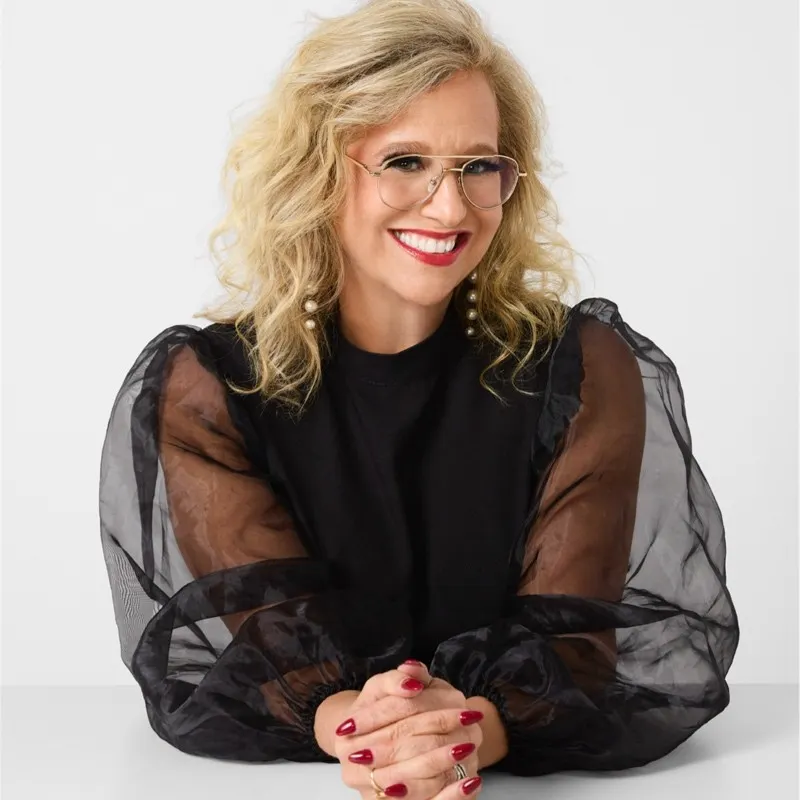
Thalberg, who officially joined Catalyst Brands in January, has been aggressively marketing JCPenney as it continues work on a $1 billion turnaround plan. The executive discussed her efforts and how marketers can engage holiday shoppers amid economic uncertainty during a virtual event co-hosted by Marketing Dive and sister publications Retail Dive and Supply Chain Dive.
The following Q&A draws from a larger conversation that occurred during a virtual event co-hosted by Marketing Dive and has been edited for clarity and brevity. You can register to watch a replay of the full event.
MARKETING DIVE: How are you expecting the macro environment to affect retail holiday sales this year?
MARISA THALBERG: We all read these reports and get the best macroeconomic data and retail data we can. But no matter what, you just have all the best intuitive and data-driven ways to play to win, and in that sense, I don’t know that it materially changes your game plan.
I would be remiss not to mention the additional pressure that every retailer is feeling because of the unexpected pressure of tariffs, and that really has created a whole new level of discomfort and tension in the business. Trying to navigate that, we always want to put the customer at the forefront of our thinking.
As a marketer, along with the rest of your business partners, you have to think about managing to the different beats of the season, thinking about where people might be pulling forward their spend, where they might be actually holding back and waiting until the end, and then just navigating through that.
During tough economic times, how are you marketing around delivering value beyond just price?
It really became most poignant to me when I first went from from luxury beauty to fast food when I became the CMO of Taco Bell. It was sobering and important to understand how real Americans live — so many people truly live paycheck to paycheck — and the reality that someone actually might be navigating a decision between a few gallons of gas and buying some tacos is the reality of more people than not.
If you’re marketing to the masses, you have to be in touch with that. I think there can be a real tendency sometimes, especially if we get in our little coastal worlds of marketing, to forget that there is a profound difference between what people can afford and what they want. I try to never lose sight of that.
People want value without compromise, and value is not just price. Price is one function of value. People would not buy an Hermès Birkin bag if value were only a dimension of price. Sometimes we actually forget that.
For me, the real equation in marketing, the value of JCPenney, is what I call that one-two punch: First, I want to wow them with what we’ve got [and] then the fact that we really help you get these things at a much better price than they deserve to cost. That is a value proposition to me.
How can marketers adopt emerging channels beyond traditional advertising to connect with consumers?
You have to take a media-agnostic approach and allow your insights to guide you [to] the customer that you’ve had today and how you are going to continue to reach them. Where is the opportunity to bring new customers in? Those may not be exactly the same thing from a channel strategy.
I’ll give you an example of being agnostic when we talk about modern media. Direct mail really works with some of our customers, so I have a responsibility to incorporate that into my strategy. It doesn’t mean it’s the main thing we do or [that we] do it for all people, but it means it’s part of our mix. At the same time, not playing on Tiktok wouldn’t be responsible for how we can reach younger, emerging customers who we want to have in our customer base.
When we talk about playing across the spectrum of media channels, I love how we’re showing up in social more and more. We’ve been leaning in more on audio. We’ve been integrating into podcasts, we’ve been marketing on Reddit. The measurement is still a bit of a thorn in all of our CMO sides relative to where we wish it would be. But nonetheless, being able to orchestrate a comprehensive program that plays a lot of different musical notes, so to speak, is not just a good idea — it’s essential.
Artificial intelligence remains the elephant in the room. Is there one facet of AI that has your attention as an opportunity for marketers during the holiday season and beyond?
It’s very hard for me to reduce it down to one thing, and I don’t know that it’s something really at this point, specific to holiday. It’s more just thinking about how marketing and business in general is transforming through AI.
It was true of digital and social media back in the early 2000s: You have to have confidence and you have to be humble. No one knows it all, and you have to be curious and learn and try. I think creative transformation is certainly a key area of focus for us, but it’s going to touch a lot of everything. It’s already impacting how we think about media. It’s even going to touch a real world physical activation that we’re doing over the holidays.
I don’t know that it’s going to be totally self-evident right away to consumers, and that’s okay. I think it’s more about getting really smart about how it’s impacting our ability to do business and get the work done.


